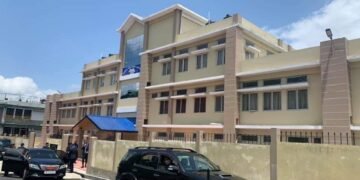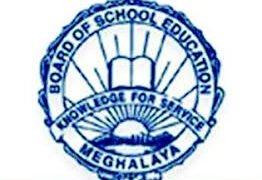Due to the frequent need for resuscitation after birth of a new born baby, it is critical to have evidence-based care guidelines and to train health providers for effective neonatal resuscitation.
To further this, a workshop on basic neo-natal resuscitation programme (NRP)- First Golden Minute (FGM) was held on November 10 at Nazareth Hospital, Shillong. The training was organized for mid-level health providers (MLHPs) of the Ayushman Bharat Health & Wellness Centres in Meghalaya. The workshop was organized by the Indian Academy of Paediatrics & National Neonatology Forum, in collaboration with NHM-Meghalaya – CPHC (Comprehensive Primary Healthcare Programme).
The workshop focused on the importance of the First Golden Minute – this refers to the first 60 seconds of an infant’s life. Within these limited seconds, the infant should begin breathing on his or her own, or interventions must be started without delay. With neonatal resuscitation training, healthcare professionals are better equipped to recognize a newborn in distress and begin treatment within 60 seconds. One minute can determine a life and a lifetime.
In the workshop, the MLHPs were trained on how to resuscitate a new born baby under various scenarios by state maternal health experts. The various interventions that should be taken in case the baby does not begin to breathe within the first 60 seconds were also explained as well as demonstrated in a step-by-step manner. This involved majorly, the use of a resuscitation bag and mask instrument for the resuscitation process. The trainers also emphasized on the importance of one-hour uninterrupted Kangaroo Mother Care (KMC) or skin-to-skin contact between the mother and the newborn.
Principal Secretary in the Health Department, Sampath Kumar, also attended the workshop. While going through the workshop and training process, he informed that almost 40 percent of deliveries in Meghalaya are still happening at home, therefore it becomes all the more significant to know the value of the First Golden Minute, not only by the healthcare providers, but also the common people, especially expecting mothers.
As informed by the Principal Secretary, institutional deliveries have now gone up to 60 percent in the state after the launch of the Rescue Mission by the Health Department, which was launched in 2020 and is aimed at saving the lives of infants and mothers. He emphasized the importance of training traditional birth attendants and the need for healthcare providers to work together with them, especially to ensure safe delivery in rural and hard-to-reach areas. While interacting with the MLHPs and the state maternal health experts, Kumar also took stock of the requirements in health centres.
Historically, Meghalaya has faced challenges in bringing down its infant mortality rate (IMR), but recent interventions by the Health Department to save the lives of mothers and children has begun to show gradual improvements in indicators. Some important progress has been made towards reducing maternal deaths since the start of the Rescue Mission.
Rescue Mission involves close weekly review of Reproductive Maternal Neonatal Child and Adolescent Health Status across all districts in Meghalaya at all levels- State, Block and Sector levels. This is part of the Problem Driven Iterative Adaptation approach to problem solving, which lies at the core of the State Capability Enhancement Project, launched by the state government to address critical developmental issues.
























